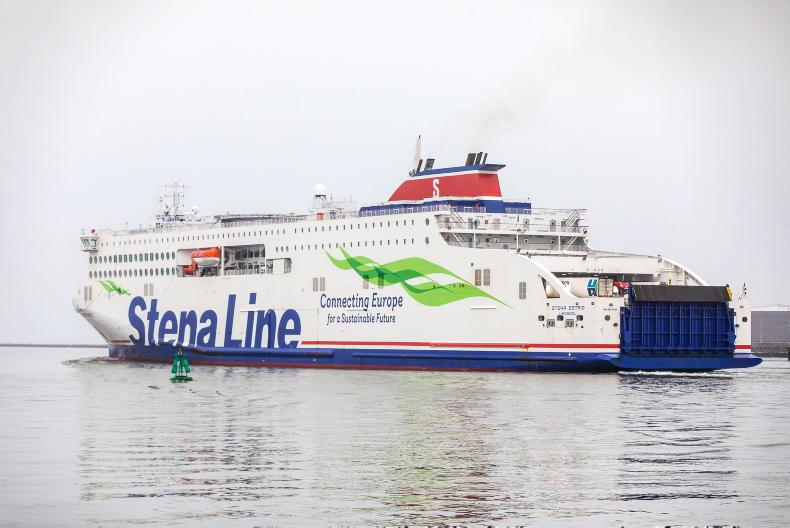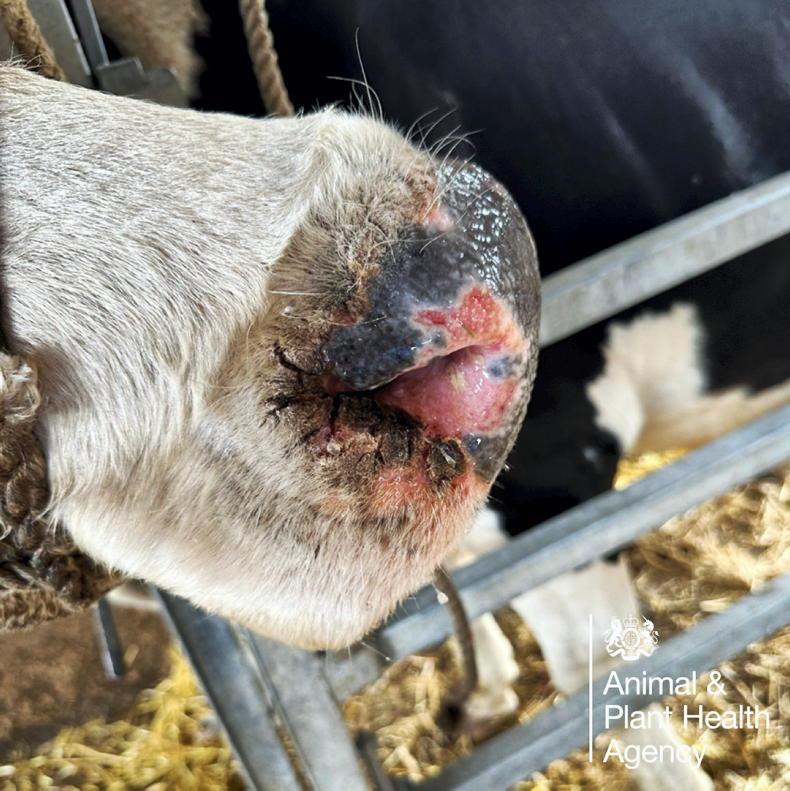Thursday’s statement from Meat Industry Ireland (MII) is confirmation of the inevitable consequence of doing business in a post-Brexit world.
It is also a cost that isn’t immediately visible to either farmers or consumers, but will be felt in the price paid by consumers and received by farmers for their livestock.
There can be debate about the numbers and savings made or added to different routes, but the bottom line is that Brexit has reintroduced the red tape that was thought to be banished forever when the EU single market was established in 1993.
These costs and bureaucracy have been carried before in exports to Britain and indeed Northern Ireland before the arrival of the EU single market and customs union.
Back to the future
They are also costs that are experienced on an ongoing basis for doing business with the rest of the world beyond the EU.
Therefore, the meat and dairy industries in Ireland have a good level of experience in compiling the paperwork and there is also good availability of vets in factories to sign veterinary certificates.
Red tape costs
While this red tape burden is unwelcome in the industry, it is at least manageable for the larger exporters.
The reality is that a single veterinary certificate will cover a 20t container of meat to a distribution or further processing centre in Britain.
However, the same type of certificate is also required for small consignments and, as is typical, small consignments are transported in what is termed groupage, multiple consignments with multiple certificates and declarations increase the risk of an error and delay for all the consignments.
Issue for British exporters
The new rules for exporting have been an even greater issue in Britain where businesses are less export focused because of the large domestic market.
Businesses and hauliers are less familiar with the new requirements and there wasn’t the same focus on preparation in advance as there has been in Ireland.
They have also had to cope with the implementation of the new certificate and inspection rules from day one, whereas Irish exporters to Britain have a lead-in time until April for certificates and it will be July before inspections commence.
This has all meant an increased reluctance of factories in Britain to export to the EU.
Solutions
Unfortunately, this is the outworking of Brexit and there is no solution other than businesses and hauliers becoming more familiar with operating the system and hopefully smoothing out some of the wrinkles.
To have a solution that would return business to where it was before would require a renegotiation of the agreement and willingness of the UK to become part of the veterinary region that includes all EU countries plus Switzerland and Norway.
In time, this may be an acceptable solution - the reason it wasn’t agreed at the outset was because the UK wanted maximum sovereignty.
Read more
Brexit: 350,000 extra export certs for meat and dairy
Article 16 vaccine controversy shows fragility of Northern Ireland Protocol
Thursday’s statement from Meat Industry Ireland (MII) is confirmation of the inevitable consequence of doing business in a post-Brexit world.
It is also a cost that isn’t immediately visible to either farmers or consumers, but will be felt in the price paid by consumers and received by farmers for their livestock.
There can be debate about the numbers and savings made or added to different routes, but the bottom line is that Brexit has reintroduced the red tape that was thought to be banished forever when the EU single market was established in 1993.
These costs and bureaucracy have been carried before in exports to Britain and indeed Northern Ireland before the arrival of the EU single market and customs union.
Back to the future
They are also costs that are experienced on an ongoing basis for doing business with the rest of the world beyond the EU.
Therefore, the meat and dairy industries in Ireland have a good level of experience in compiling the paperwork and there is also good availability of vets in factories to sign veterinary certificates.
Red tape costs
While this red tape burden is unwelcome in the industry, it is at least manageable for the larger exporters.
The reality is that a single veterinary certificate will cover a 20t container of meat to a distribution or further processing centre in Britain.
However, the same type of certificate is also required for small consignments and, as is typical, small consignments are transported in what is termed groupage, multiple consignments with multiple certificates and declarations increase the risk of an error and delay for all the consignments.
Issue for British exporters
The new rules for exporting have been an even greater issue in Britain where businesses are less export focused because of the large domestic market.
Businesses and hauliers are less familiar with the new requirements and there wasn’t the same focus on preparation in advance as there has been in Ireland.
They have also had to cope with the implementation of the new certificate and inspection rules from day one, whereas Irish exporters to Britain have a lead-in time until April for certificates and it will be July before inspections commence.
This has all meant an increased reluctance of factories in Britain to export to the EU.
Solutions
Unfortunately, this is the outworking of Brexit and there is no solution other than businesses and hauliers becoming more familiar with operating the system and hopefully smoothing out some of the wrinkles.
To have a solution that would return business to where it was before would require a renegotiation of the agreement and willingness of the UK to become part of the veterinary region that includes all EU countries plus Switzerland and Norway.
In time, this may be an acceptable solution - the reason it wasn’t agreed at the outset was because the UK wanted maximum sovereignty.
Read more
Brexit: 350,000 extra export certs for meat and dairy
Article 16 vaccine controversy shows fragility of Northern Ireland Protocol








SHARING OPTIONS